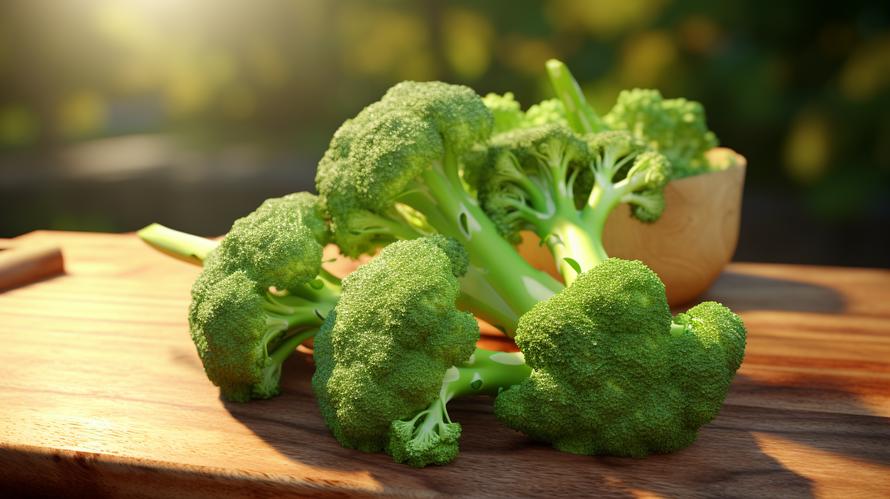Imagine a vegetable specifically designed to fight cancer. It may sound like something found only in a sci-fi movie, but that vegetable already exists, and it’s broccoli. As part of the cruciferous vegetable family – which also includes cabbage, cauliflower, and Brussels sprouts – broccoli contains powerful compounds called isothiocyanates (ITCs) that target and attack cancer-promoting proteins in cells while leaving the healthy proteins unharmed.
Researchers have made some astonishing findings about the benefits of consuming cruciferous vegetables for women diagnosed with breast cancer. They discovered that consuming these vegetables daily – with broccoli having the most significant impact – resulted in remarkably improved survival rates for breast cancer patients. According to Sarah J. Nechuta, M.P.H., Ph.D., of Vanderbilt University, “Breast cancer survivors can follow the general nutritional guidelines of eating vegetables daily and may consider increasing intake of cruciferous vegetables, such as greens, cabbage, cauliflower, and broccoli, as part of a healthy diet.”
In the Shanghai Breast Cancer Survival Study, researchers examined Chinese women diagnosed with breast cancer and found that regularly eating cruciferous vegetables reduced the risk of breast cancer recurrence by up to 35 percent – an impressive statistic that highlights the importance of including these powerful vegetables in our diets.
But what makes cruciferous vegetables, and particularly broccoli, such effective breast cancer fighters?
The Power of ITCs and Sulforaphane
First and foremost, we have isothiocyanates (ITCs) to thank, but another significant compound found in cruciferous vegetables is sulforaphane. Sulforaphane is a natural organosulfur compound that boasts powerful antioxidant, antimicrobial, and anticancer properties. This compound has been shown to inhibit the growth and spread of cancer cells, suppress inflammation, trigger apoptosis (cancer cell death), and even protect healthy cells from DNA damage caused by exposure to carcinogens.
Several studies support these claims. For example, research from Oregon State University found that sulforaphane effectively interfered with breast cancer cells’ growth and stopped them from multiplying further. Another study at Johns Hopkins School of Medicine showed that sulforaphane could block the growth of malignant tumors in the breast by impeding the action of a protein called histone deacetylase (HDAC), which has been linked to cancer progression.
Cruciferous Vegetables and Hormonal Balance
Hormonal imbalances are a primary factor in breast cancer development, and cruciferous vegetables play a vital role in maintaining hormonal balance. Cruciferous vegetables contain a compound called indole-3-carbinol (I3C), which has been shown to have remarkable effects on estrogen metabolism. Research has revealed that I3C can alter estrogen levels and interfere with the pathways that promote the development and growth of hormone-dependent cancers. Consuming cruciferous vegetables can help restore hormonal balance and significantly contribute to preventing breast cancer and other hormone-related issues.
Boosting the Immune System
Cruciferous vegetables, particularly broccoli, are packed with various essential nutrients that work together to support a robust immune system. Some of these nutrients include vitamins C, E, and K, folate, potassium, calcium, and dietary fiber – all of which play vital roles in our health and overall well-being. The stronger your immune system is, the better equipped it is to fight and prevent cancer and other chronic illnesses.
How to Maximize the Benefits of Cruciferous Vegetables
It’s essential to incorporate cruciferous vegetables daily into your diet to reap their cancer-fighting and overall health-enhancing benefits. The recommended daily serving is at least five servings of vegetables, with particular focus on cruciferous vegetables. To maximize the nutrients and ITC content, consider eating them raw or lightly steamed – as studies have shown that overcooking can significantly reduce their cancer-fighting properties.
Besides, you can also increase the bioavailability of sulforaphane found in broccoli and other cruciferous vegetables by adding mustard seed powder or consuming them alongside other sulfur-containing foods like garlic, onion, and leeks.
Additionally, combining cruciferous vegetables with healthy fats like olive oil or avocado can help enhance the absorption of fat-soluble vitamins and further optimize their health benefits.
In conclusion, incorporating cruciferous vegetables – especially broccoli – into your daily diet is a simple yet effective strategising plan to improve your health, prevent breast cancer, and promote long-lasting well-being. As we’ve seen, these powerful vegetables offer a wide range of benefits and can have a profoundly positive impact on your overall health and well-being, making them a must-have in any healthy diet.



